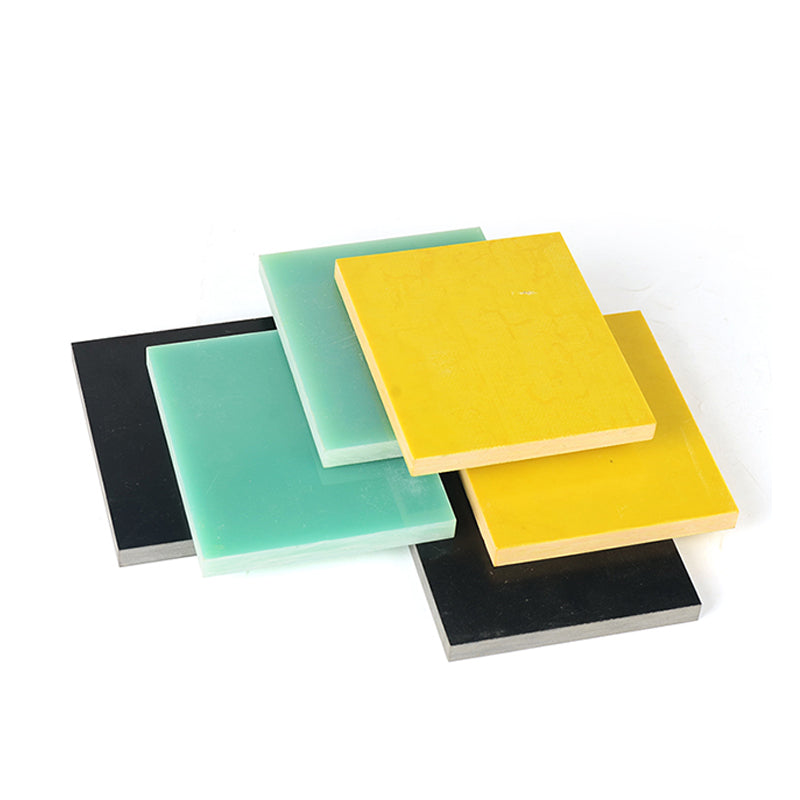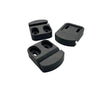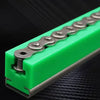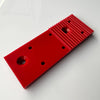The Industrial Edge: Cutting ABS Sheets for Superior Machine Parts
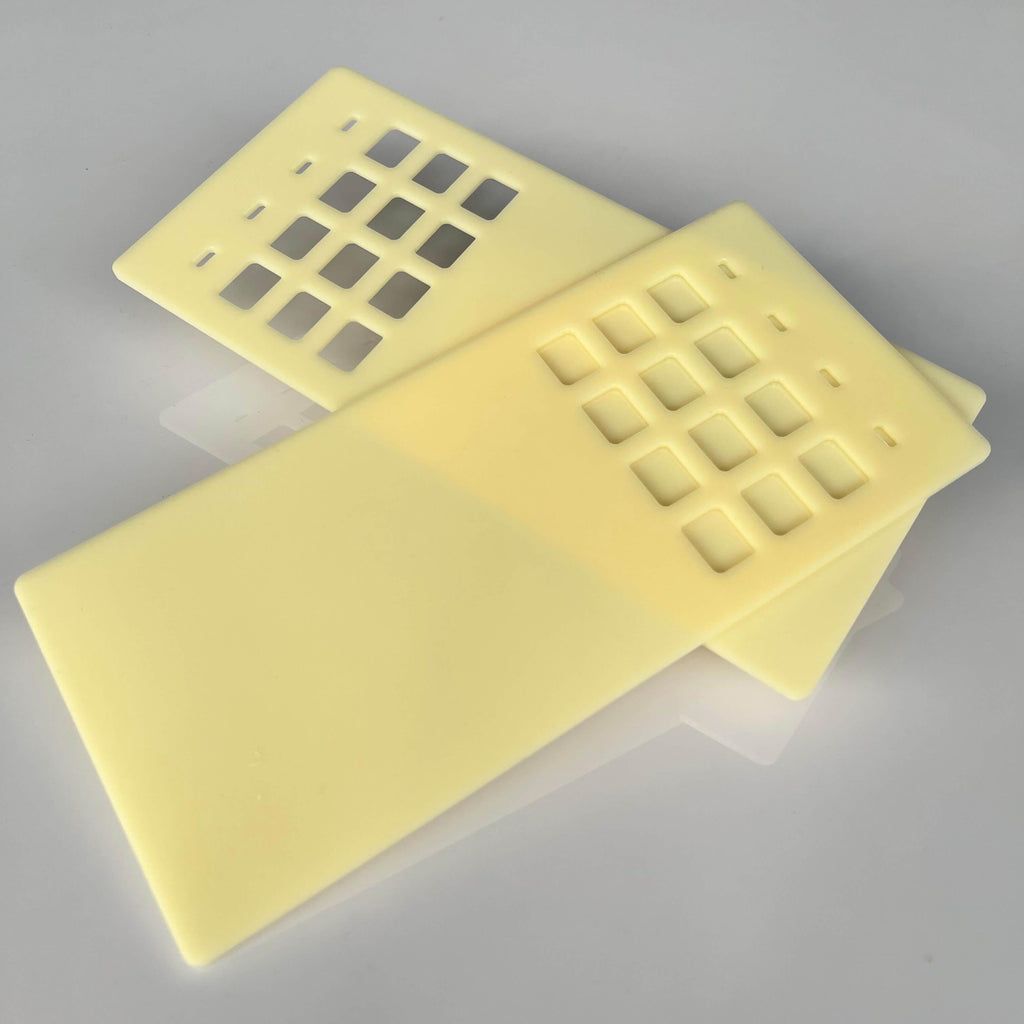
In the blog post "The Industrial Edge: Cutting ABS Sheets for Superior Machine Parts," I delve into the world of industrial-grade ABS plastic, a material crucial for fabricating high-quality machine parts. This comprehensive guide begins with "Choosing the Right Tools for Cutting ABS Plastic," where I discuss the importance of selecting the appropriate tools like Dremel tools, jigsaws, and hot knives for precise and efficient cutting.
🎉🎉🎉Limited Time Offer Use code: QR4GNY08SHVR at checkout and enjoy a special discount on your entire order! 👉 ABS plastic

Moving forward, the post explores the cutting-edge technology of "Laser Cutting ABS Sheets: Precision and Efficiency," highlighting how laser cutting offers unparalleled accuracy and speed in industrial applications. For those preferring traditional methods, "Step-by-Step Guide to Cutting ABS Plastic with a Jigsaw" provides a practical tutorial, ensuring you can achieve clean and accurate cuts every time.
In the section "Hot Knife Techniques for Cutting ABS Plastic," I share expert tips on using a hot knife for smooth and effortless cuts, a method especially beneficial for complex shapes and sizes. The post then shifts focus to "Fabricating Industrial Parts: Cutting ABS Sheets for Custom Applications," emphasizing the versatility of ABS sheets in creating customized parts for machines, tools, and equipment.
Lastly, the importance of safety and efficiency is addressed in "Safety and Best Practices in Cutting ABS Plastic." This part of the post is dedicated to ensuring you maintain the highest standards of safety while achieving optimal results in your cutting processes.
Whether you're a seasoned professional or new to the field of industrial manufacturing, "The Industrial Edge: Cutting ABS Sheets for Superior Machine Parts" is your go-to resource for mastering the art of cutting ABS sheets, ensuring your projects stand out in terms of quality and precision.
Choosing the Right Tools for Cutting ABS Plastic
When it comes to fabricating high-quality parts from ABS sheets, selecting the right cutting tools is crucial. In this section, we'll explore the most effective tools for cutting ABS plastic, focusing on their specific applications in industrial settings.

Dremel Tools for Precision Cutting
Dremel tools are a popular choice for cutting ABS plastic due to their precision and versatility. Ideal for intricate designs and fine cuts, Dremel tools can be equipped with various attachments and bits, making them suitable for a range of applications. Whether you're trimming small parts or engraving details, a Dremel tool offers the control and accuracy needed for delicate tasks. The high-speed rotary action of these tools allows for clean, crisp cuts, minimizing the need for post-cut finishing.
Jigsaws: Ideal for Curved and Complex Cuts
For larger or more complex shapes, jigsaws are the go-to tool. Capable of handling thicker ABS sheets, jigsaws offer the flexibility to make curved and straight cuts with ease. When using a jigsaw, selecting the right blade is key. Blades designed for plastic will reduce melting and ensure smoother cuts. Jigsaws are particularly useful in industrial settings where larger parts or irregular shapes are required. Their ability to quickly and efficiently cut through ABS sheets makes them invaluable for rapid prototyping and bulk manufacturing.
Hot Knives for Seamless Edges
Hot knives are another essential tool for cutting ABS plastic, especially when you need seamless edges. By heating the blade, a hot knife can slice through ABS sheets with minimal resistance, resulting in clean, smooth edges that require little to no sanding. This method is particularly effective for cutting out intricate shapes or when working with thinner sheets. In industrial applications, hot knives are often used for creating custom parts that require a high level of finish and precision.
Safety and Maintenance
While discussing these tools, it's important to emphasize safety and proper maintenance. Always wear protective gear, such as safety glasses and gloves, when cutting ABS plastic. Regularly check your tools for wear and tear, and ensure they are properly maintained for optimal performance.
Whether you're using a Dremel tool, a jigsaw, or a hot knife, understanding the strengths and applications of each tool is key to achieving the best results when cutting ABS sheets. By choosing the right tool for your specific needs, you can ensure precision, efficiency, and safety in all your industrial projects.

Laser Cutting ABS Sheets: Precision and Efficiency
In the realm of industrial fabrication, laser cutting stands out as a highly efficient and precise method, especially when working with ABS plastic sheets. This section delves into the numerous advantages of using laser cutting technology, emphasizing its impact on precision, efficiency, and the overall quality of the finished parts.
Unmatched Precision with Laser Cutting
One of the most significant benefits of laser cutting is its extraordinary precision. Unlike mechanical cutting tools, lasers can achieve incredibly fine cuts with a high degree of accuracy. This precision is crucial when creating complex shapes or detailed parts where even a small deviation can compromise the component's functionality. Laser cutting eliminates the risk of mechanical errors, ensuring that each cut is exactly as intended.
Efficiency in Production
Efficiency is another key advantage of laser cutting. The process is much faster than traditional cutting methods, allowing for rapid production without sacrificing quality. This speed is particularly beneficial in industrial settings where time is often a critical factor. With laser cutting, it's possible to increase output significantly while maintaining a high standard of quality. Additionally, the ability to program and automate the laser cutting process further enhances its efficiency, reducing the need for manual intervention and minimizing the potential for human error.
Quality of Finished Parts
The quality of parts produced through laser cutting is superior in many ways. The laser's precision results in clean, smooth edges that often require no further finishing, saving time and resources in the post-production phase. This clean cutting process also reduces material wastage, making it a more sustainable option. Furthermore, laser cutting minimizes the physical stress on the ABS sheets, preserving the material's integrity and ensuring that the finished parts are strong and durable.
Versatility and Customization
Laser cutting is not just limited to straight cuts; it offers immense versatility, allowing for intricate designs and customization. This adaptability makes it an ideal choice for industries requiring bespoke components or those who frequently update designs.
Safety and Environmental Considerations
While discussing laser cutting, it's important to address safety and environmental considerations. Proper ventilation and safety equipment are essential due to the fumes and heat generated during the cutting process. Additionally, laser cutting is a more environmentally friendly option as it reduces waste and energy consumption compared to traditional methods.
Laser cutting is a game-changer for cutting ABS sheets, offering unmatched precision, efficiency, and quality. Its ability to produce complex, high-quality parts quickly and sustainably makes it an invaluable tool in the industrial sector.

Step-by-Step Guide to Cutting ABS Plastic with a Jigsaw
Cutting ABS plastic sheets with a jigsaw is a common practice in many industrial settings. This guide provides a detailed walkthrough on how to use a jigsaw effectively, ensuring clean and precise cuts. We'll cover everything from blade selection to cutting techniques.
Choosing the Right Jigsaw Blade
The first step in cutting ABS plastic with a jigsaw is selecting the appropriate blade. For ABS plastic, you want a blade with fine teeth to ensure a smooth cut and to minimize melting. Look for blades specifically designed for cutting plastics or metals, as these typically have the finer teeth necessary for a clean cut. Remember, the right blade not only improves the quality of the cut but also extends the life of your jigsaw.
Preparing the ABS Sheet
Before you start cutting, it's important to properly prepare the ABS sheet. Measure and mark the cutting line clearly using a non-permanent marker. Secure the sheet to your work surface using clamps to prevent any movement during cutting. This step is crucial for safety and precision.
Setting Up Your Jigsaw
When setting up your jigsaw, adjust the speed setting according to the thickness of the ABS sheet. A slower speed is generally better for thicker sheets to prevent the blade from overheating and melting the plastic. Ensure that the jigsaw’s base plate is clean and free from any debris that could scratch the surface of the ABS sheet.
The Cutting Process
Now, you're ready to start cutting. Begin by aligning the jigsaw blade with your marked line. Start the jigsaw at a slow speed, gradually increasing as you begin to move along the line. It's important to let the blade do the work and not force it through the material. Apply steady, even pressure and guide the jigsaw carefully along the marked line. If you need to make curved cuts, do so slowly and gently to maintain control and accuracy.
Finishing the Cut
Once you've completed the cut, turn off the jigsaw and wait for the blade to stop moving before lifting it from the material. If there are any rough edges, you can smooth them out using fine-grit sandpaper. This step is essential for a professional finish and to ensure the part fits perfectly in its intended application.
Safety Tips
Always wear safety glasses and hearing protection when using a jigsaw. Keep your fingers away from the blade, and be aware of the power cord's location to prevent accidental cuts or trips.
Cutting ABS plastic with a jigsaw can be a straightforward process if you follow these steps. With the right blade, proper setup, and careful technique, you can achieve clean, precise cuts every time.

Hot Knife Techniques for Cutting ABS Plastic
Using a hot knife to cut ABS plastic is an effective technique that offers precision and ease. This method is particularly beneficial for achieving clean, precise cuts with minimal physical effort. In this guide, we'll explore how to use a hot knife for cutting ABS plastic and highlight its advantages.
Understanding the Hot Knife Tool
A hot knife is a specialized tool that heats up to cut through plastic by melting it along the desired line. This tool is ideal for cutting complex shapes or long, straight cuts in ABS plastic sheets. The key advantage of a hot knife is its ability to seal the edges as it cuts, reducing the need for post-cut finishing.
Preparing for the Cut
Before you start cutting, it's important to prepare your workspace. Ensure that your work area is well-ventilated, as melting plastic can release fumes. Mark the cutting line on the ABS sheet using a non-permanent marker. Secure the plastic sheet to your work surface to prevent movement during cutting.
Setting the Temperature
The next step is to set the correct temperature on your hot knife. The ideal temperature will depend on the thickness of the ABS sheet. Thicker sheets require a higher temperature to cut effectively. It's important to find a balance – too hot, and the plastic may burn; too cool, and the cuts will be uneven.
The Cutting Process
Once the hot knife is at the correct temperature, align it with the marked line on your ABS sheet. Gently guide the knife along the line, applying consistent pressure. The hot knife should glide through the plastic, leaving a clean, sealed edge. For curves or intricate shapes, move slowly and steadily to maintain control and accuracy.
Finishing Touches
After completing the cut, turn off the hot knife and allow it to cool before storing it safely. If there are any minor imperfections along the cut edge, you can clean them up with fine-grit sandpaper. However, one of the benefits of using a hot knife is that it often eliminates the need for additional finishing.
Safety Considerations
Safety is paramount when using a hot knife. Always wear protective gloves and safety glasses. Be cautious of the high temperatures and never touch the blade with your bare hands. Ensure that your work area is free from flammable materials.
A hot knife is an excellent tool for cutting ABS plastic, offering clean, precise cuts with minimal effort. Its ability to seal edges as it cuts makes it a valuable tool for any project involving ABS plastic.

Fabricating Industrial Parts: Cutting ABS Sheets for Custom Applications
Cutting ABS sheets for custom industrial applications is a critical process in the manufacturing of specific machine parts, tools, and equipment. This versatility makes ABS plastic a preferred material in various industries. In this section, we'll explore how cutting ABS sheets can be tailored to meet the unique needs of custom industrial applications.
The Versatility of ABS Plastic in Industrial Manufacturing
ABS plastic is renowned for its strength, durability, and flexibility, making it an ideal material for a wide range of industrial applications. From automotive components to electronic housings, ABS can be molded and cut to fit virtually any specification. Its ability to withstand high temperatures and resist impact makes it particularly suitable for demanding industrial environments.
Tailoring Cuts for Custom Parts
Customization is key in industrial manufacturing, and cutting ABS sheets to specific dimensions and shapes is essential for creating custom parts. Precision cutting techniques like laser cutting, CNC machining, and the use of jigsaws or hot knives allow for the fabrication of parts with exact tolerances and intricate designs. This precision ensures that each part fits perfectly into its intended application, whether it's a component in a complex machine or a bespoke tool for a specialized task.
Design and Prototyping
The design and prototyping phase is crucial in custom part fabrication. During this stage, ABS sheets can be rapidly cut and shaped to test and refine designs. This flexibility accelerates the development process, allowing for quick iterations and adjustments before final production. It ensures that the final product meets all the required specifications and functions as intended.
Meeting Industry-Specific Needs
Different industries have unique requirements for their parts and tools. Cutting ABS sheets for custom applications means adapting to these specific needs. For instance, in the aerospace industry, parts may need to be lightweight yet strong, while in the automotive sector, durability and heat resistance might be the priority. Tailoring the cutting process to these requirements is essential for producing parts that not only fit but also perform optimally in their respective environments.
Ensuring Quality and Consistency
Quality and consistency are paramount in industrial part fabrication. When cutting ABS sheets for custom parts, it's important to maintain high standards of quality control. This includes regular checks during the cutting process to ensure each part meets the required specifications and consistent quality across all batches.
The ability to tailor cuts of ABS sheets for custom industrial applications is a significant advantage in manufacturing. It allows for the creation of specialized parts that meet the exact needs of various industries, ensuring functionality, reliability, and efficiency.

Safety and Best Practices in Cutting ABS Plastic
Working with ABS plastic sheets requires adherence to certain safety measures and best practices to ensure a safe and efficient cutting process. This section focuses on the essential guidelines for handling ABS plastic and maintaining cutting equipment, emphasizing the importance of safety in the workplace.
Understanding the Risks
Before delving into the cutting process, it's important to understand the risks involved. Cutting ABS plastic can produce fumes, especially when using high-temperature tools like hot knives or laser cutters. These fumes can be harmful if inhaled. Additionally, the cutting process can create sharp edges and debris, posing a risk of cuts or other injuries.
Personal Protective Equipment (PPE)
The use of Personal Protective Equipment (PPE) is crucial when cutting ABS plastic. This includes wearing safety glasses to protect your eyes from flying debris, respiratory masks to avoid inhaling fumes, and protective gloves to safeguard your hands. Ensuring that you are properly equipped reduces the risk of accidents and health hazards.
Proper Ventilation
When cutting ABS plastic, especially in enclosed spaces, proper ventilation is essential. This helps to disperse harmful fumes and maintain a safe working environment. If possible, use exhaust systems or work in well-ventilated areas to minimize exposure to fumes.
Equipment Maintenance
Regular equipment maintenance is key to safe and effective cutting. Ensure that your cutting tools, whether they are jigsaws, hot knives, or laser cutters, are in good working condition. Regularly check for dull blades, damaged cords, and other wear and tear. Using well-maintained equipment not only ensures safety but also improves the quality of your cuts.
Safe Handling Practices
When cutting ABS sheets, follow safe handling practices. This includes securing the material properly to prevent movement during cutting, using clamps or other holding devices. Always keep your hands away from the cutting path and be mindful of where the power cord is to avoid tripping or cutting hazards.
Training and Awareness
Ensure that anyone involved in the cutting process is properly trained and aware of the safety protocols. This includes understanding how to operate the cutting equipment safely, knowing emergency procedures, and being aware of the potential hazards associated with cutting ABS plastic.
Prioritizing safety and adhering to best practices when cutting ABS plastic is essential. By understanding the risks, using the right protective gear, ensuring proper ventilation, maintaining your equipment, practicing safe handling, and staying informed and trained, you can create a safe and efficient working environment.
In conclusion, mastering the art of cutting ABS sheets is pivotal for fabricating high-quality industrial parts. From selecting the right tools like Dremel tools, jigsaws, and hot knives, to embracing advanced techniques such as laser cutting, each method offers unique benefits tailored to specific needs. We've explored the precision and efficiency of laser cutting, the versatility of jigsaws, the finesse of hot knives, and the customization possibilities in fabricating industrial parts. Moreover, we emphasized the paramount importance of safety and best practices in this process. By understanding and applying these insights, you can enhance the quality, efficiency, and safety of your ABS sheet cutting projects, ensuring that your industrial parts not only meet but exceed expectations. Remember, the key to successful ABS plastic cutting lies in precision, attention to detail, and adherence to safety protocols, setting the foundation for excellence in industrial manufacturing.

Take Your Industrial Fabrication to the Next Level!
Interested in learning more about our specialized cutting techniques and services? Fill out the contact form below and let's start a conversation. Whether it's a query or a request for a quote, we're ready to provide the insights and support you need to succeed.
-
Posted in
abs, beeplastic, cutting, machine parts, manufacturing, plastic

